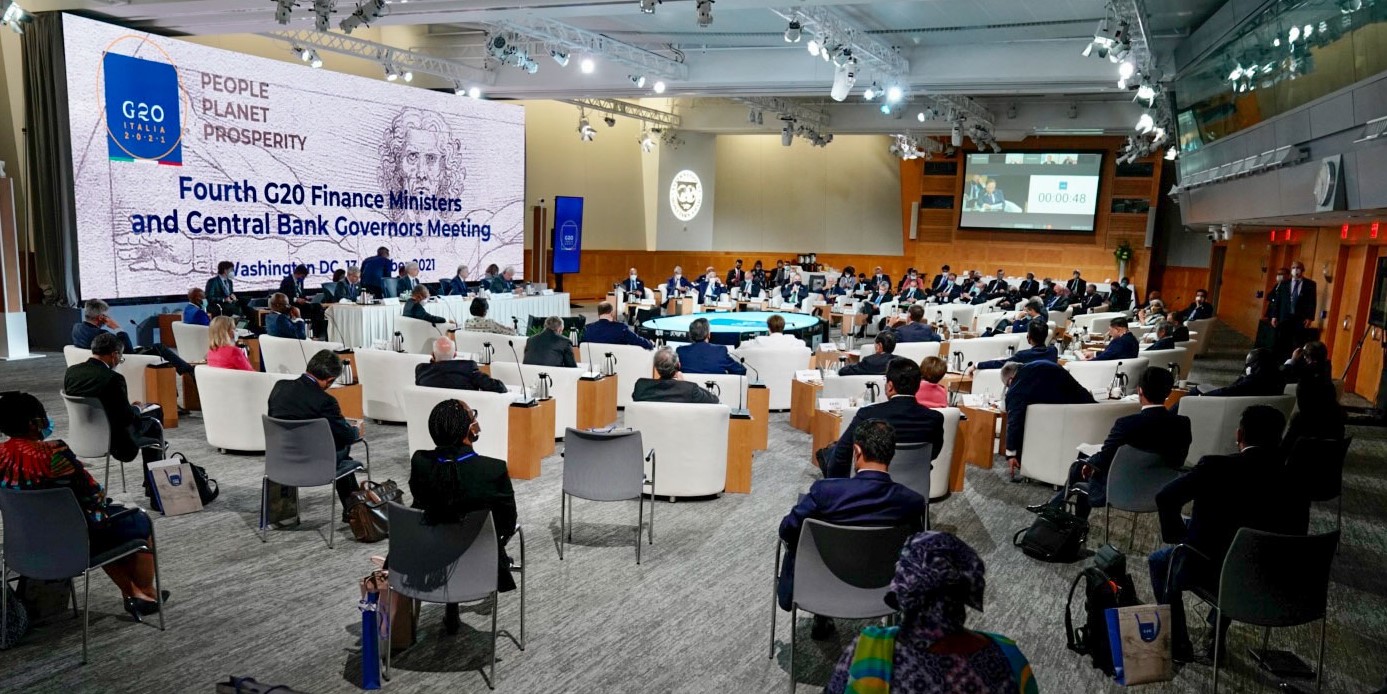Global minimum tax, what Italy will do

Finance ministers of the G20 have approved the comprehensive tax agreement that provides for the elimination of unilateral taxes on digital services
Green light from the meeting of finance ministers and central bank governors of the G20 on the global minimum tax.
The support comes a few days after 136 OECD countries agreed to adopt the “Global minimun tax” for multinationals that collect more than 750 million euros from 2023.
As Repubblica explains, the agreement envisages “on the one hand the setting of a minimum rate of 15% for corporate taxation, to prevent the flight of large multinationals to more favorable tax residences. The second, technically more complex, aims to shift the tax base of the companies in which they actually operate, regardless of the location of their registered office. In practice, it provides that large companies with over $ 20 billion in turnover will be subject to taxation in the countries in which they operate, between 20% and 30% on profits, if greater than 10% of revenues ".
The deal aims to capture tax revenue from major US tech companies , such as Google, Facebook, Amazon and Apple.
While the agreement calls for implementation by the end of 2023 and immediately prohibits the imposition of new digital taxes, it does not face the timescales for the removal of existing digital taxes.
After chairing the G20 meeting, Italian Economy Minister Daniele Franco said Rome will eliminate its digital tax by 2024 in line with the OECD agreement to impose a minimum corporate tax of 15% and redistribute in part of the taxation rights on large highly profitable multinationals.
It will now be up to the heads of state and government who will meet at the G20 scheduled for October 30 in Rome to definitively sanction the new mechanism.
All the details.
G20 SUPPORT TO AGREEMENT ON GLOBAL MINIMUM TAX
The G20 ministers and governors support the agreement on the minimum tax at 15% reached by the OECD. The agreement, says the final statement, "will allow the construction of a more stable and fairer international tax system".
According to the OECD, the agreement will allow "to re-attribute to countries around the world the benefits of over 125 billion dollars made by 100 multinational companies among the largest and most profitable in the world".
EXPECTED REVENUES
As Il Sole 24 ore summarizes , “according to estimates, there are 275 billion in total revenues globally. For 150 billion this is new revenue, the result of the minimum tax of 15% envisaged for the giants (not necessarily technological ones) that have turnover exceeding 750 million dollars in each jurisdiction. The other 125 billion, on the other hand, already exist but would change destination with the redistribution of taxes for multinationals (with turnover of at least 25 billion and a margin of at least 10%) in the States where they sell goods and services without having a physical presence of offices and offices ".
WHAT THE MINISTER OF THE ECONOMY FRANCO SAID
For the Italian Economy Minister Daniele Franco, the agreement will allow the removal of national digital taxes, such as those of Italy and France, starting from 2024.
Franco said that national digital taxes are always "sub-optimal solutions". "We expect unilateral national taxes to be removed by 2024," he told reporters at a news conference.
HOW MUCH ITALY HAS RECEIVED
Franco said Italy is currently collecting around € 250 million per year in digital taxes, based on revenues from digital services sold in the country.
According to the holder of the Mef, Italy will collect at least as many revenues from the new tax regime.
THE US POSITION ON THE GLOBAL MINIMUM TAX
As Reuters recalls, US officials have pushed for a quicker removal of digital taxes that existed after the deal.
US Treasury officials said on Monday that they believed the digital tax removal talks would eliminate the need for the US to pursue retaliatory tariffs on countries that have imposed the taxes, including Italy, France, Britain. Spain, Austria and India. ( Here the in-depth study by Start on why the United States is also beating Italy against the web tax ).
The office of the US Trade Representative (Ustr) prepared the tariffs, but immediately suspended them to allow negotiations on the global tax agreement. The suspensions expire on November 28th.
Finally, on Sunday, Treasury Secretary Janet Yellen said she was confident that the United States Congress will pass legislation to implement the minimum global corporation tax agreed by the OECD.
Since the end of 2017 the United States has such a minimum tax, so it is a question of raising the rate to comply with the agreement.
This is a machine translation from Italian language of a post published on Start Magazine at the URL https://www.startmag.it/innovazione/tassa-minima-globale-che-cosa-fara-litalia/ on Thu, 14 Oct 2021 10:15:58 +0000.
